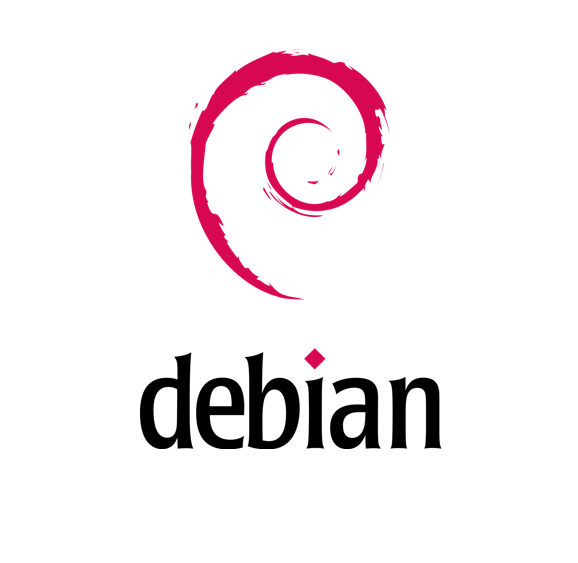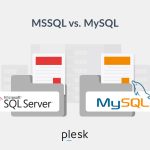Table of Contents
What is Debian OS ?

Debian OS is a free and open-source operating system (OS) based on the Linux kernel. It is one of the oldest and most stable Linux distributions, widely respected for its strong emphasis on software freedom, stability, and versatility. Debian OS can be used as a server, desktop, or embedded system OS and is highly popular in environments where reliability and security are priorities.
Key Features of Debian:
- Open Source: Debian OS exclusively uses free software and is governed by the Debian OS Free Software Guidelines (DFSG), which ensures that all included software respects users’ freedom.
- Package Management: It uses the Advanced Package Tool (APT) to manage software, making it easy to install, update, and remove applications. There are over 59,000 precompiled software packages available.
- Stability: Debian OS is known for its rock-solid stability. It undergoes rigorous testing before release, which makes it a preferred choice for servers and production environments.
- Wide Architecture Support: Debian OS supports a broad range of hardware architectures, including x86, ARM, and MIPS, making it a good fit for a variety of devices.
- Multiple Flavors: It has three main branches:
- Stable: The most tested and reliable version, though updates come less frequently.
- Testing: More recent software than Stable, but still undergoing testing.
- Unstable (Sid): The cutting edge of development with frequent updates but less stability.
- Security: Debian OS has a dedicated security team that provides timely patches and security updates, making it a secure option for both servers and desktops.
- Community-Driven: Debian OS is maintained by a large global community of volunteers. Its development is transparent, and decisions are made collectively by the developers.
Many popular Linux distributions, like Ubuntu, are derived from Debian, meaning they share many of its features and software packages.
Role of Debian OS in Web Servers :
In web hosting, Debian OS is widely used as a server operating system due to its stability, security, and open-source nature. It’s a preferred choice for hosting environments, particularly for web servers, databases, and application servers.
- Stability and Reliability:
- Debian is known for its robust and stable releases, making it ideal for web hosting environments where uptime and reliability are critical.
- Many hosting providers use Debian for production servers because it has a long lifecycle with regular security updates.
- Security:
- Debian has a strong focus on security, with timely updates and patches, which is crucial for hosting websites that handle sensitive data (e.g., e-commerce, user data).
- It includes built-in firewall tools (like
iptables) and supports SSL/TLS for encrypted web traffic.
- Package Management (APT):
- Debian’s Advanced Package Tool (APT) makes it easy to install, update, and manage software required for web hosting, such as Apache, Nginx, MySQL, PHP, Python, and other web technologies.
- The wide repository of pre-built software packages ensures that a web server can be quickly set up with essential services.
- Resource Efficiency:
- Debian is lightweight and efficient, using minimal system resources, which helps in maximizing the performance of hosted websites or applications, especially on shared hosting servers.
- Customization and Flexibility:
- Hosting providers and users can fully customize the Debian environment to meet specific web hosting needs. You can install or remove software, configure firewalls, and tune server performance.
- It can be used in a variety of server configurations (e.g., LAMP stack: Linux, Apache, MySQL, PHP).
- Community and Documentation:
- Being a community-driven project, Debian has excellent documentation, and there is an active community that offers support, making it easier to troubleshoot or resolve web hosting issues.
- Multiple Architecture Support:
- Debian works on many different hardware platforms, allowing hosting providers to run Debian on various types of servers, from small virtual private servers (VPS) to large dedicated hosting solutions.
Applications of Debian OS :
Debian OS is widely applied in various fields due to its versatility, stability, and open-source nature. Below are some key applications of Debian OS:
1. Web Hosting and Web Servers
- Apache/Nginx Servers: Debian is frequently used to host websites and web applications using web server software like Apache and Nginx.
- LAMP/LEMP Stack: It’s often part of the LAMP (Linux, Apache, MySQL, PHP) or LEMP (Linux, Nginx, MySQL, PHP) stack for dynamic web hosting.
2. Server Infrastructure
- File Servers: Debian is used to set up file-sharing servers using software like Samba and NFS.
- Email Servers: Hosting mail services with software like Postfix, Dovecot, and SpamAssassin.
- Database Servers: It hosts databases like MySQL, PostgreSQL, or MariaDB for applications and websites.
- DNS Servers: Debian powers DNS servers with software like BIND.
3. Development Environments
- Programming and Scripting: Debian is a popular development environment for software written in languages such as Python, Java, PHP, Ruby, C, C++, and more.
- Continuous Integration/Deployment: It’s often used in CI/CD pipelines to automate building, testing, and deploying applications using tools like Jenkins and GitLab CI.
4. Cloud and Virtualization
- Virtual Private Servers (VPS): Many cloud providers offer Debian as an OS option for VPS instances due to its lightweight nature and stability.
- Docker/Containerization: Debian is often used as a base image for Docker containers, providing a minimal and stable environment.
- Virtualization Platforms: It’s commonly used as the host operating system in virtualized environments running hypervisors like KVM or Xen.
5. Desktop and Workstations
- Personal Desktop OS: Debian can be used as a desktop operating system, providing a secure, free, and stable environment for everyday computing.
- Development Workstations: It is commonly used by developers as a workstation OS due to its wide support for development tools and environments.
6. IoT and Embedded Systems
- Embedded Devices: Debian is used as the OS for embedded systems in devices like routers, industrial machines, or smart home devices.
- Internet of Things (IoT): Debian-based systems power many IoT devices, providing a flexible and lightweight solution for resource-constrained hardware.
7. Security Applications
- Firewall and VPN Servers: It is used to set up firewalls using tools like
iptablesor for VPN services using OpenVPN. - Penetration Testing: Debian is the base for many security-focused distributions like Kali Linux, used for penetration testing and vulnerability assessments.
8. Scientific Computing
- High-Performance Computing (HPC): Debian can be used in clusters for scientific research and data processing.
- Data Analysis and Research: It supports a variety of tools and libraries for data science and machine learning, like R, Python, TensorFlow, and Scikit-learn.
9. Education
- Teaching: Debian is used in educational environments to teach computer science, programming, and system administration.
- School Servers: It powers educational servers like the Debian Edu/Skolelinux project, which helps set up computer labs and school networks.
10. Network Management
- Network Monitoring: It’s used to run network monitoring tools like Nagios, Zabbix, or Icinga for managing and monitoring network infrastructure.
- DHCP and Proxy Servers: Debian can manage DHCP services (using
ISC DHCP) or act as a proxy server with tools like Squid.
11. Media Servers
- Streaming Media: It is used to run media servers like Plex, Kodi, or Emby, which stream content over a local network or the internet.
- Content Delivery Networks (CDN): Debian servers can be used in a CDN to distribute large volumes of data, video, or software to users globally.
12. Backup and Storage
- Backup Servers: Debian can manage backup solutions using software like Bacula or rsync to store and synchronize data across networks.
- Network Attached Storage (NAS): It can be used to build NAS systems, providing centralized file storage for small businesses or personal use.
13. Blockchain and Cryptocurrency
- Blockchain Nodes: Debian is used to run blockchain nodes for cryptocurrencies like Bitcoin and Ethereum.
- Mining Servers: It can also serve as an OS for cryptocurrency mining operations, running mining software.
Debian’s flexibility, strong community support, and vast package repository make it suitable for a wide range of applications across different industries.
Advantages of Debian OS
- Stability:
- Debian is known for its rock-solid stability. It undergoes rigorous testing before release, making it ideal for servers and critical applications where reliability is paramount.
- Security:
- Debian has a dedicated security team that provides timely patches and updates. Its stable branch is very secure and less prone to vulnerabilities, making it a good choice for hosting, production environments, and security-conscious users.
- Free and Open-Source:
- Debian strictly adheres to the Debian Free Software Guidelines (DFSG), ensuring that the system is composed entirely of free and open-source software. This promotes user freedom and reduces costs for businesses and individuals.
- Wide Software Repository:
- Debian has one of the largest software repositories with over 59,000 packages, covering virtually every type of software needed for development, server management, multimedia, and more. The Advanced Package Tool (APT) makes it easy to install and manage this software.
- Versatility:
- Debian is highly versatile and can be used on a variety of platforms, including desktops, servers, embedded systems, and cloud environments. It supports numerous architectures, such as x86, ARM, and MIPS.
- Customization:
- Debian allows users to fully customize their installation, including only the packages they need, making it lightweight and efficient. This makes it perfect for users who want a minimal setup or those looking for complete control over their system.
- Long-Term Support (LTS):
- Debian offers extended support for its stable releases (five years for LTS), making it reliable for long-term projects, especially in enterprises or servers.
- Community and Documentation:
- Debian has a large, active community that provides extensive documentation, support, and troubleshooting guides. This community-driven aspect ensures that issues are quickly identified and resolved.
- Multiple Branches:
- Debian offers different branches (Stable, Testing, Unstable), catering to users who need either high stability (Stable) or the latest features (Testing and Unstable).
- Low System Requirements:
- Debian can run on low-end hardware due to its minimalistic nature, making it ideal for older computers, servers, or embedded devices.
Disadvantages of Debian OS
- Older Software in Stable Branch:
- Since Debian Stable focuses heavily on stability, its software packages tend to be older compared to distributions that focus on bleeding-edge features (e.g., Fedora, Arch Linux). This can be a drawback for users who want the latest versions of applications.
- Less User-Friendly for Beginners:
- Debian doesn’t always prioritize ease of use for beginners. The installation process, while robust, may not be as intuitive as user-friendly distributions like Ubuntu or Linux Mint, especially for those unfamiliar with Linux.
- Release Cycle:
- Debian’s release cycle can be slower compared to other distributions. While this ensures stability, users who want access to newer software and features may find the wait for new releases too long.
- Limited Proprietary Software Support:
- Out of the box, Debian avoids including proprietary software or drivers due to its commitment to free software. This may require additional steps to install things like non-free graphics drivers (e.g., NVIDIA) or proprietary codecs.
- Not Ideal for Gamers:
- Due to the focus on stability and the exclusion of proprietary drivers, Debian is not typically the best choice for gaming. Newer game releases and updates may require additional configuration or won’t be as readily available.
- Requires More Manual Configuration:
- Debian’s minimalistic nature requires more manual configuration compared to more beginner-oriented distributions like Ubuntu or Fedora. This may involve manually installing hardware drivers, codecs, or additional software, which can be daunting for inexperienced users.
- Unstable Branch Risks:
- While the Unstable (Sid) branch offers the latest software, it comes at the cost of frequent bugs and potential instability. Users who rely on Sid need to be prepared to troubleshoot frequent issues.
- No Official Corporate Support:
- Unlike distributions like Red Hat Enterprise Linux (RHEL) or SUSE Linux Enterprise, which come with commercial support, Debian does not have official corporate support. While the community is helpful, businesses may prefer a system with guaranteed professional support.
- Complex Upgrades:
- While Debian is generally straightforward to upgrade, major version upgrades can sometimes be complex, requiring careful planning, especially on systems that have a lot of custom configurations or are running critical applications.
- Fewer Graphical Tools:
- Debian focuses more on command-line utilities and fewer graphical configuration tools compared to user-friendly distributions like Ubuntu or Fedora. This might slow down new users unfamiliar with terminal commands.
Summary
Debian OS is an excellent choice for users who prioritize stability, security, and customizability, particularly in server environments and for developers. However, its older software in the stable branch and a steeper learning curve make it less suitable for beginners or users who need the latest features or a gaming-oriented setup.


